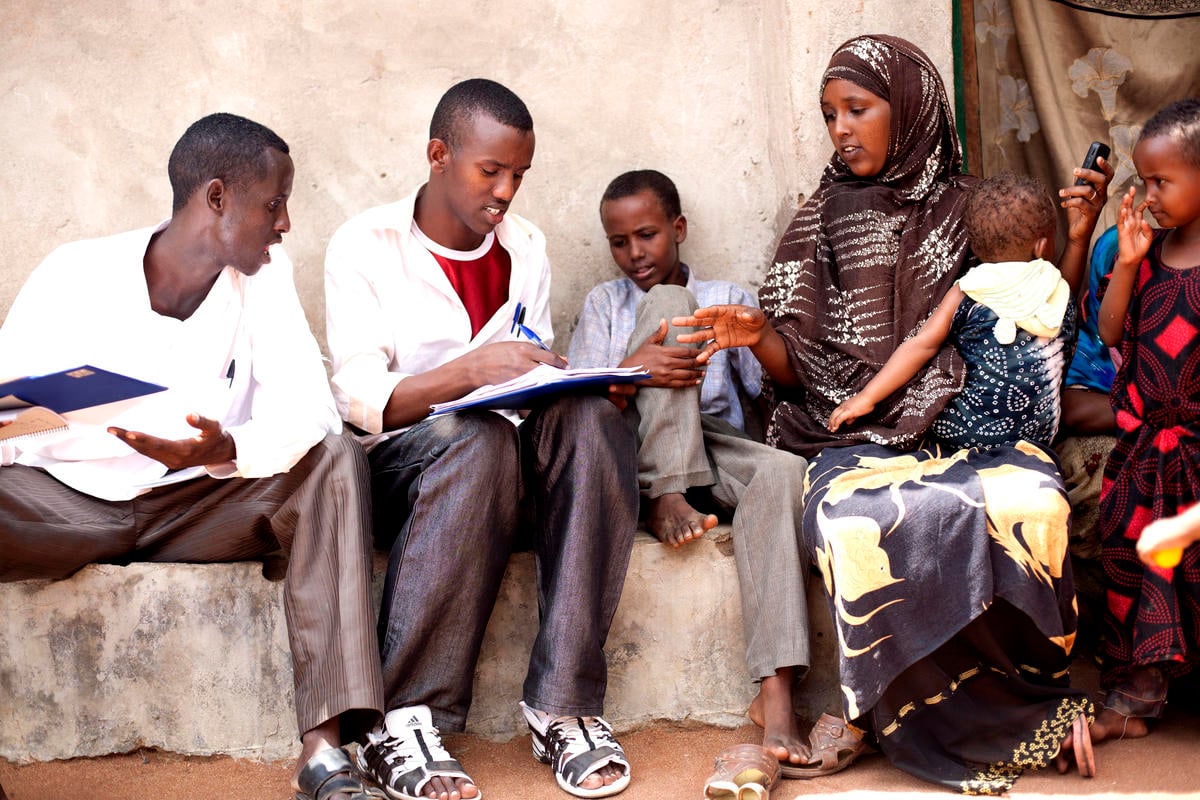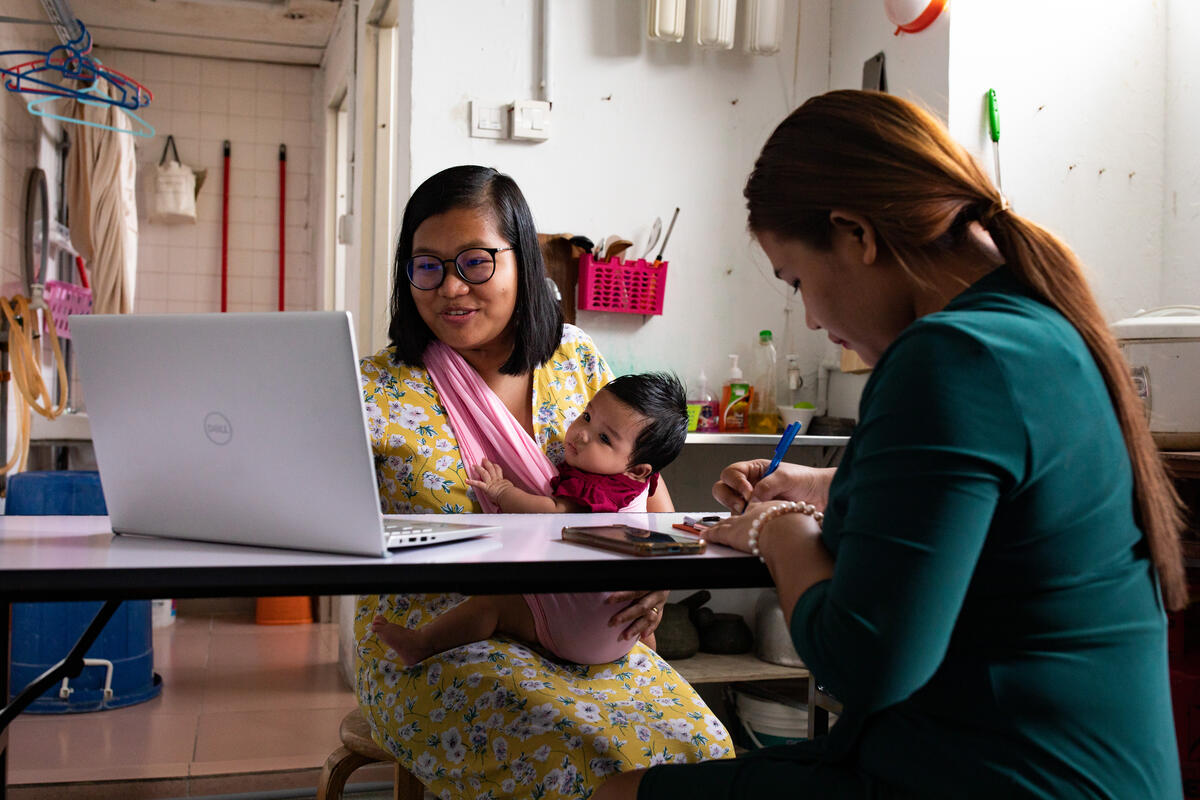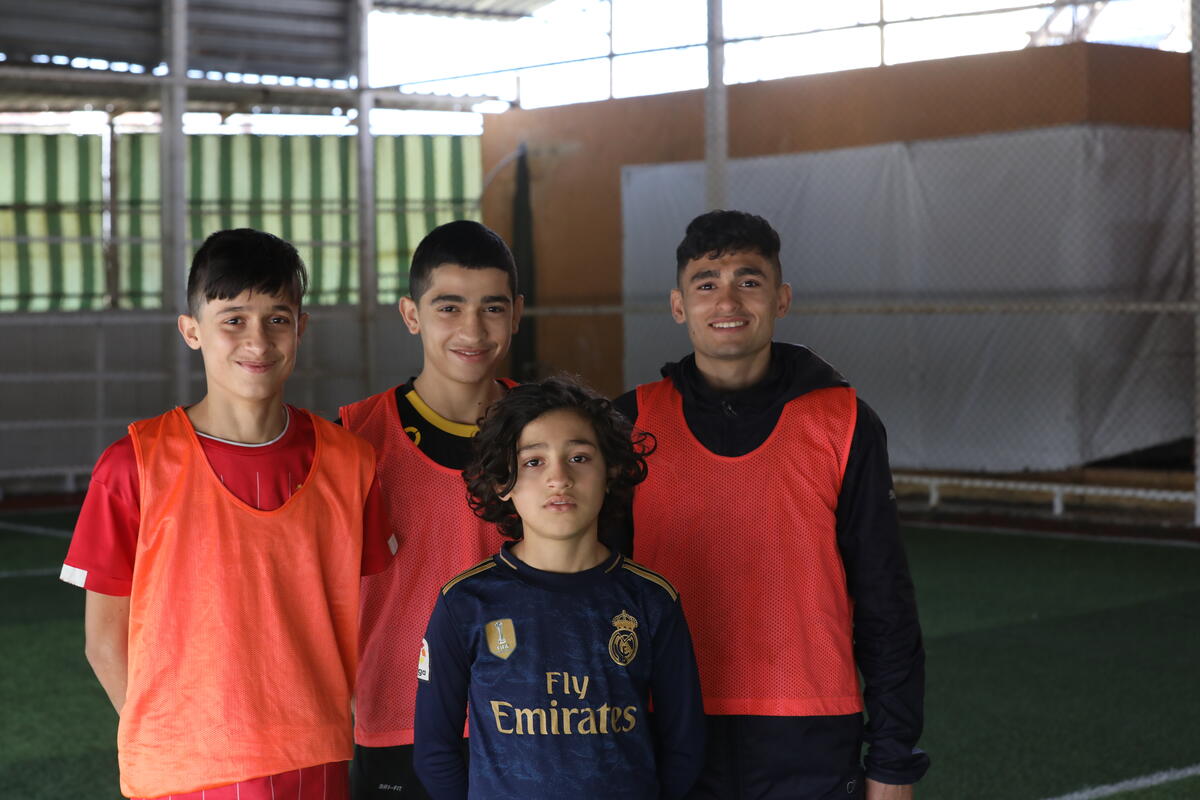Strategic health information
Strategic health information

Over the past decades, UNHCR has been strategically designing and implementing health information tools, including the Integrated Refugee Health Information System (iRHIS) and surveys, to ensure accurate information exists on refugees and the coverage and quality of health services they access. Reliable sources of health information are especially critical in contexts where refugees are not sufficiently captured in existing national systems. Ministries of health in refugee hosting countries increasingly recognize the importance of including refugees within national health plans and resource allocation, but to do so they need information. UNHCR’s refugee health information tools complement – not compete with - national health information systems.
How do UNHCR health information tools strategically improve refugee access to healthcare?
UNHCR’s health information tools increase refugee access to healthcare by addressing insufficiently available information on coverage and quality of healthcare. UNHCR maintains crosscutting tools to collect, store and monitor health and nutrition data. The tools meet worldwide humanitarian standards, assist in data collection, collation and analysis, and are consistent across participating operations. As appropriate, governments and partners use the data to plan for and respond to refugee health needs.
In many operations, refugees play an integral role in the delivery of health services to other refugees. They are often frontline staff responsible for primary data collection and reporting. As refugees may not speak or write the same language as the host country, UNHCR’s health information tools used at the community level may be available in relevant refugee languages.
UNHCR’s strategic health information tools include the following:
The Integrated Refugee Health Information System
Relaunched in 2020, the iRHIS is an interactive web based application designed to collate and analyse a comprehensive set of health and nutrition data that visualizes trends over time and generates a range of reports. iRHIS provides country and global updates on standard indicators to inform programming and on comparative analysis with host communities across all subsections of public health. Frontline partner health staff in healthcare facilities use webform to collect data on refugees and host population living in camp/settlement settings. Data collected include births, deaths, notifiable disease surveillance, health conditions including mental health, non communicable diseases, sexual and reproductive health, vaccination, nutrition, and service coverage. Various stakeholders, including ministries of health, NGOs and other UN agencies, utilize the data and updates. The system works online, with enhanced user-friendly data visualization and analytical functionality.
IRHIS has the capacity to monitor disease outbreaks to protect the community, prevent exposure and transmission, and reduce morbidity and mortality. The Outbreak Reporting Module of iRHIS helps public health practitioners track disease and transmission patterns and respond effectively. This module has been instrumental in tracking outbreaks of measles, cholera, and COVID-19.
Health Access and Utilization Survey Plus
Urban or non-camp settings present different challenges for surveillance and monitoring compared to traditional refugee camp settings. Reliable data on the health needs of non-camp refugees is relatively difficult to obtain compared to camp settings. Non-camp refugees often have greater freedom of movement and may consult a diverse range of service providers (e.g., government, private, NGO clinics). Out-of-camp refugees may also face many barriers in accessing health services, including economic, geographic, cultural, linguistic, and administrative.
UNHCR’s Health Access and Utilization Survey Plus (HAUS+) monitors how refugees outside of camps access and utilize health services in a representative sample of the population. HAUS+ is a flexible tool that allows for survey to be tailored to various technical areas including knowledge about key health practices, behaviour and household practices, availability and use of certain health services, access to water, sanitation and hygiene, housing, food and education. HAUS+ can also pinpoint strengths and weaknesses in accessing and successfully using appropriate health care services, particularly in an urban refugee population. Repeat surveys allow for monitoring trends over time in how urban refugees access and utilize services and their living conditions.
Standardized Expanded Nutrition Surveys (SENS)
At UNHCR, ensuring good nutritional outcomes in refugee populations is a priority. Our programmes rely on having good data from these challenging, unique environments, and regular nutrition surveys, undertaken at the household level, play a key role in how we are able to deliver effective and timely interventions to improve outcomes. UNHCR Standardized Expanded Nutrition Survey (SENS) guidelines which include standardized methods for collecting, analysing and presenting individual and household-based data on demography, nutrition, health, food security, mosquito net coverage and WASH, whilst maintaining quality standards for the measurement of nutrition indicators and Mobile data technology is used. To view SENS reports, go to the data dashboard.
Surveys on inclusion of refugees in national systems
The inclusion of refugees into national health systems is a fundamental priority. When scarce resources are concentrated in one system instead of diluted amongst several, the health of the community – both hosts and refugees – is more likely to be positively impacted. To track progress towards the goal of inclusion, UNHCR has designed a detailed country-level inclusion survey to assess the extent to which refugees are included in host country’s health policies, plans and systems. Conducted every two years, the survey provides detailed information on the extent of inclusion and integration of refugees in national system, tracks progress over time and identifies areas where inclusion could be strengthened.
Balanced score card and medical warehouse checklist
Access to healthcare of sufficient quality is critical to achieving Sustainable Development Goal 3 (“Ensure healthy lives and promote wellbeing for all at all ages”). While the HAUS+ monitors how refugees access and use healthcare, UNHCR’s Balanced Score Card (BSC) Dashboard assesses the quality of services provided to refugees in primary healthcare facilities. The BSC allocates scores to a health facility in the following domains: services provided; staffing and coverage; equipment and supplies; quality of care; patient satisfaction. The BSC identifies gaps in healthcare inputs and capacities so that UNHCR and partners can develop targeted recommendations and monitor improvements over time. Based on BSC, UNHCR supports the development and provision of appropriate staff capacity building, resources, technical support and documented good practices. BSC assessments are conducted at least annually and more frequently in case of low scores where clinics are in need of improvement.
More specific for the monitoring of storage and management of medical supply is the Medical Warehouse Checklist. This checklist verifies the minimum Good Storage and Distribution Practices (GSDP) requirements are met. It is designed to be used exclusively for monitoring medical warehouses that do not directly supply patients, and it is not applicable for monitoring health facility pharmacies. The checklist consists of two parts (Part 1: 'Questionnaire' and Part 2: 'Stock verification exercise') and will provide a score to measure the performance of the medical warehouse. The checklist generates a final score using a weighted system that assigns different values to each section. If the score falls within the range of 60-80%, the exercise should be repeated after six months. If the score is lower, the exercise should be repeated every three months. The frequency of repeating the exercise (checklist tool) is based on the final score achieved. For structures that consistently score very well and are in compliance with the minimum GSDP requirements, the exercise should be carried out at least once a year.
Maternal and perinatal death audits
Maternal and perinatal death audits are a systematic and structured process to understand the medical and social reasons that contributed to maternal and perinatal death. Preventing these deaths is a priority for UNHCR’s health programmes. UNHCR advocates for maternal death audits to take place within 48 hours of the death. The audit results are analysed at the country, regional and global level so that healthcare providers and policymakers can better understand the causes and contributing factors in order to take steps to improve healthcare services and systems and to prevent future deaths. UNHCR’s maternal death data collection form and the accompanying guide can be found in the Maternal death review guidance and data collection form, 2020. UNHCR also recommends and utilizes WHO’s guidance and tools on implementing maternal and perinatal death surveillance and response as a key resource for country operations and key stakeholders on the ground.
Medical referral database
Refugees with health needs that cannot be met at primary care level may be referred to secondary care often at hospital level. The Medical Referral database (MRD) is a web-based application designed to track these refugees through the referral process to a hospital and back to the community. The system captures the reason for referral, the outcome and costs. This tool supports the monitoring of the implementation of referral care programmes by partners.








